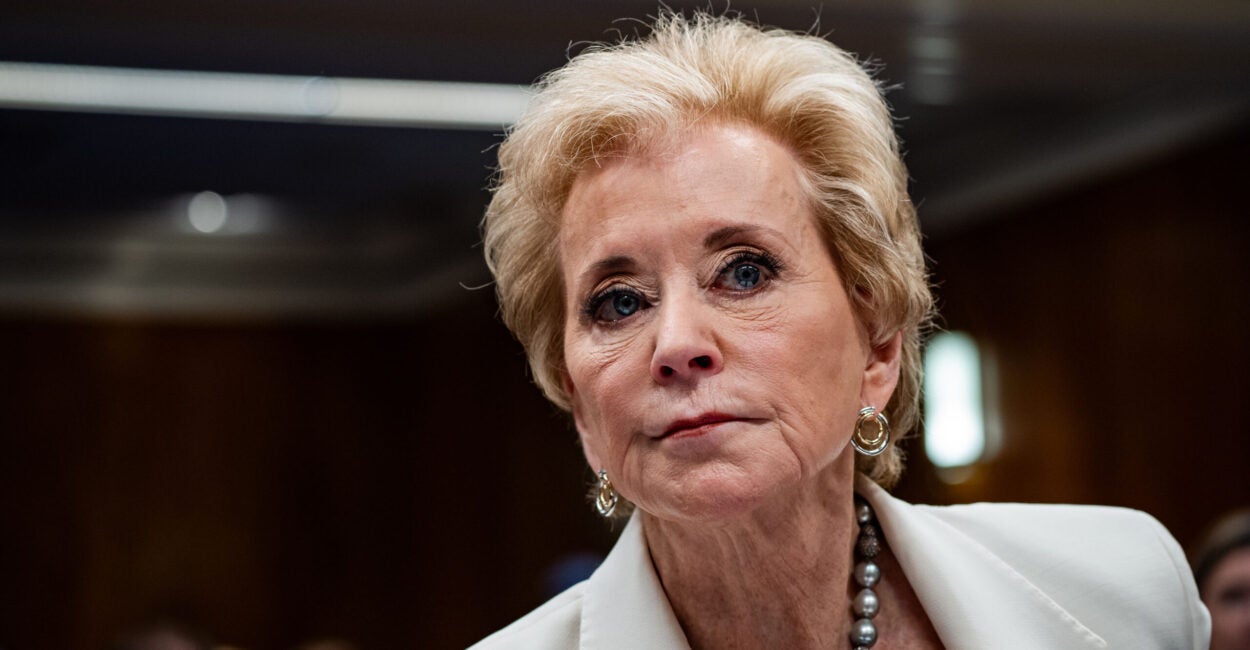University Systems Create Accreditor Focused on Merit and Outcomes

Today’s higher education accreditors let colleges and universities get away with mediocrity: low graduation rates, highly negative return on investment, and activism that looks little like scholarship.
Live Your Best Retirement
Fun • Funds • Fitness • Freedom
Accreditors are meant to vouch for college quality and to recommend improvements—but they rarely hold institutions accountable for such travesties as a four-year graduation rate under 15 percent, a negative ROI in six figures, and pervasive antisemitism. Instead, they often require “diversity” practices that bleed into illegal discrimination.
Fortunately, university systems in six states have formed a new accreditor to focus on “academic excellence” and “student outcomes.”
The new entity, the Commission for Public Higher Education, is a product of efforts led by the State University System of Florida and state systems in North Carolina, South Carolina, Georgia, Tennessee, and Texas. (Texas has multiple state systems—the partner here is the Texas A&M University System.) It joins a small number of new accreditors bringing competition and innovation to higher education accreditation.
Today, accreditation is one of the core elements of quality assurance enabling a college to operate in a state (with few exceptions) and to participate in government programs like student loans.
That shouldn’t be the case. Decoupling accreditation from financial aid would benefit students, empower states, and let accreditors refocus on quality improvement.
The HERO Act, as Heritage’s Lindsey Burke wrote when it was proposed, would do this by allowing “states to establish flexible accreditation models that would infuse a level of customization in higher education [because it] would empower states to allow any entity to credential courses.”
The act also would give students “the flexibility to use their federal aid for specific courses, rather than aid being conditioned on a student attending a degree-terminal institution.” The act was originally proposed in 2014 by then-Rep. Ron DeSantis and Sen. Mike Lee.
For now, however, since institutional accreditation remains the only route to federal financial aid, attention has focused on reform of existing accreditors and accreditation rules on the one hand and on the creation of new accreditors on the other.
President Trump’s executive order on accreditation in April 2025 outlined “new principles” for a “student-oriented” accreditation system. Meanwhile, the six state systems have been developing the new consortium.
It’s notable that public universities in all six states have traditionally been accredited by the Southern Association of Colleges and Schools Commission on Colleges, known as SACSCOC or SACS. Time and time again, SACS has interfered in university governance. North Carolina, South Carolina, Florida, Georgia, and Virginia (which is not yet in the consortium) all suffered at the hands of SACS overreach.
But the era of regional monopolies in accreditation has come to an end. In the first Trump administration, new regulations permitted “regional” accreditors to work anywhere in the country. From the federal point of view, they all became national accreditors. That change enabled Florida and North Carolina to mandate that public institutions change their accreditor when the time came for reaccreditation.
The increase in competition for accreditation is a welcome change—one that could enable universities to specialize in student outcomes rather than on inputs like the number of books in the library. Soon, the Commission for Public Higher Education will be one of the new options.
But CPHE must be recognized by the U.S. Department of Education before students from its accredited colleges can get federal financial aid. What is more, states generally require that a college be accredited by a federally recognized accreditor to be authorized to operate in their states.
That means institutions will need to spend a couple of years “double accredited,” with their current accreditor considered primary and CPHE considered secondary. Under current rules, CPHE must demonstrate two years of experience before it can be officially recognized by the Education Department. Then, institutions can drop their previous accreditor in favor of CPHE.
However, the two-year rule does not appear in the Higher Education Act but in the Education Department’s regulations. That means the department can and should reconsider the rule. One year of experience may be enough, particularly in a case where existing state systems with extensive, relevant assessment experience are responsible.
In Trump’s April executive order, he required the department to “resume recognizing new accreditors to increase competition and accountability in promoting high-quality, high-value academic programs focused on student outcomes.” The department has good reason to quickly commence and conclude rulemaking so that CPHE will be recognized before the end of Trump’s current term.
At the same time, CPHE needs to act quickly to be ready to accredit, and it should start providing accreditation as soon as possible. After all, the two-year rule might not change, and a 2029 Democrat administration could renew the Biden administration’s antagonism toward accreditation reform.
Taxpayers should be grateful for these reforms, but they should also be clear-eyed about what accountability for student outcomes means. Institutions that have low graduation rates or whose programs produce poor financial outcomes will no longer get a pass they don’t deserve.
If CPHE does its job, large amounts of resources wasted by appropriators and students will be curtailed—but citizens may have to accept that their favorite local football team may no longer be able to operate if its attached college isn’t performing or reforming.
CPHE initiates a new era of choice and accountability for colleges in the southeast—an era free from political activism. This is a chance to refocus many of America’s public universities on education instead of indoctrination. Let’s hope the standards stay high and more states join the consortium.
The post University Systems Create Accreditor Focused on Merit and Outcomes appeared first on The Daily Signal.
Originally Published at Daily Wire, Daily Signal, or The Blaze
What's Your Reaction?
 Like
0
Like
0
 Dislike
0
Dislike
0
 Love
0
Love
0
 Funny
0
Funny
0
 Angry
0
Angry
0
 Sad
0
Sad
0
 Wow
0
Wow
0








































































